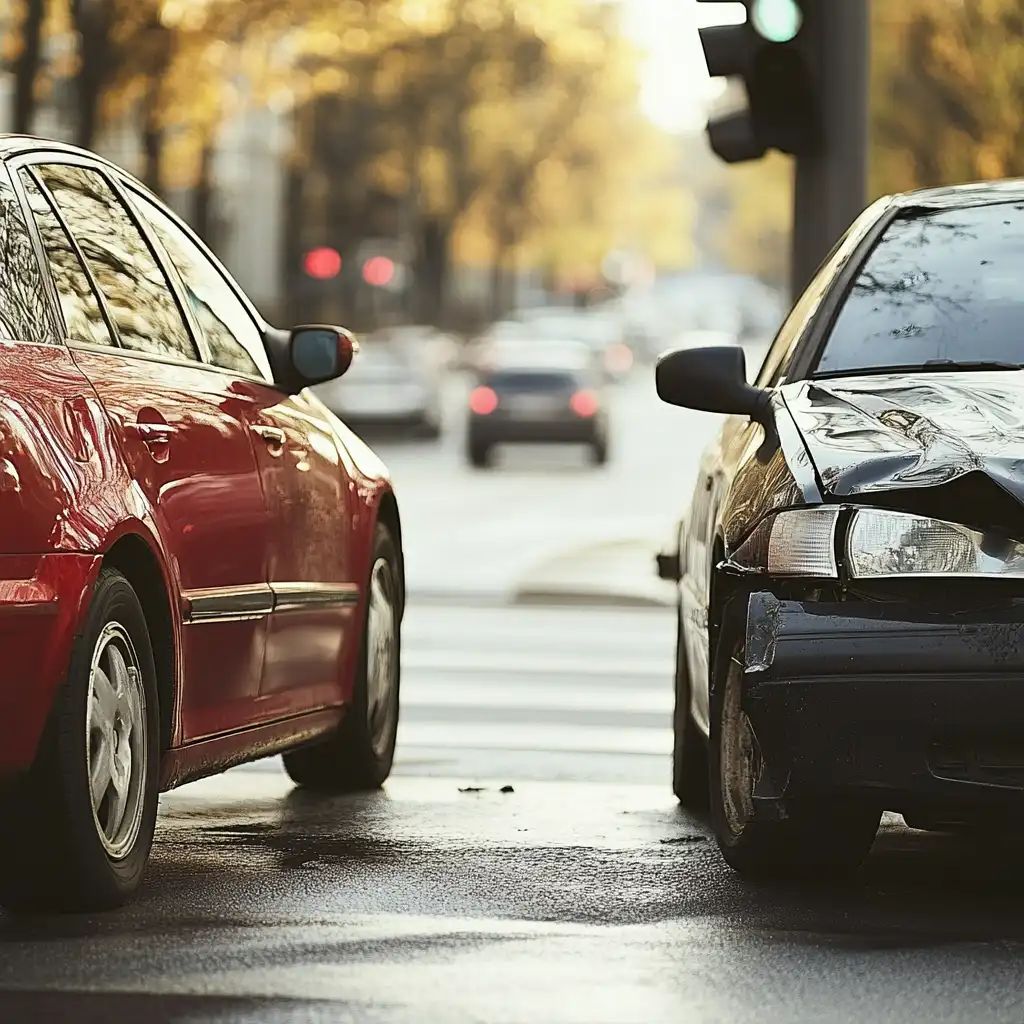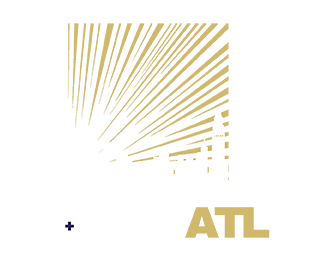Were you in a car accident in the State of Georgia and need to obtain…

If you’re dealing with the aftermath of a car accident, whether it be legal, physical, financial, or emotional, you’re probably finding yourself in the middle of conversations full of terms you've never come across before.
At The Fitzpatrick Law Firm, we believe that every client should be informed about the processes and laws they are dealing with. To help you understand the basics, we've broken down some of the most common terms related to auto accidents and personal injury claims.
Search By First Letter:
| A | B | C | D | E | F | G | H | I | J | K | L | M | N | O | P | Q | R | S | T | U | V | W | X | Y | Z |
A
Adjuster’s Settlement Offer
An adjuster’s settlement offer is the first amount of money the insurance company offers to pay you after an accident. This amount might be lower than what you deserve, so you don’t have to accept it right away.
Consulting an experienced car accident attorney can help you get the amount you are actually entitled to.
At-Fault State
An at-fault state is a place where the driver who causes a car accident is responsible for paying for the damages and injuries. This is usually handled through the at-fault driver’s insurance company.
For example, if you cause an accident, your insurance will cover the costs for the other driver’s car repairs, medical bills, or other losses.
Attorney Consultation
An attorney consultation is a meeting with a lawyer to talk about your case. Many personal injury lawyers offer free consultations, where they explain how they can help and answer your questions.
C
Car Insurance
Insurance is a safety net to help pay for damages or injuries after an accident. If you're in a crash, the at-fault driver’s insurance usually covers the cost of repairs, medical bills, and more.
However, insurance companies often try to pay as little as possible, so having a lawyer can help you get a fair settlement.
Types of Insurance:
Collision Coverage
Collision coverage pays to fix or replace your car if it’s damaged in an accident, no matter who caused it.
Comprehensive Coverage
Comprehensive coverage helps pay for damage to your car that’s not caused by a crash, like if your car is stolen, damaged by a storm, or hit by a falling tree.
Liability Coverage
Liability coverage is car insurance that pays for damage or injuries you cause to other people or their property in an accident. It does not cover your own car or injuries. If you are found liable for an accident, your liability insurance will likely help cover some or all of the other party's costs.
Personal Injury Protection (PIP)
PIP is insurance that helps pay for medical bills, lost wages, or other costs if you or your passengers are hurt in a car accident, no matter who was at fault.
Uninsured or Underinsured Motorist Coverage
This type of car insurance helps you if the other driver doesn’t have insurance or doesn’t have enough insurance to pay for all the damage or injuries they caused.
For instance, if you are in a car accident and the other driver is liable, but does not have liability coverage to cover your costs, your uninsured motorist coverage can kick in to help you.
Claim
A claim is a request you make to an insurance company to pay for the damages caused by the accident. Whether you file with your insurance or the other drivers insurance will depend on who is at-fault.
For instance, if someone rear-ends your car and is at fault, you can file a claim with their liability insurance company to pay for repairs. If your car is damaged by a storm you can file a claim with your insurance company—provided your policy includes comprehensive coverage.
Claim Adjuster
A claim adjuster is a person who works for the insurance company. Their job is to decide how much money you should get for your claim. Sometimes, they try to pay as little as possible, so it’s good to know your rights.
Civil Lawsuit
A civil lawsuit is a way to solve a disagreement in court when someone believes another person has caused them harm.
Comparative Negligence
Comparative negligence is when both people involved in an accident share some of the blame. The responsibility is divided based on how much each person’s actions contributed to the accident.
Contributory Negligence
Contributory negligence is when someone who gets hurt in an accident is partly at fault, and in some places, they cannot get any money for their injuries, even if the other person was mostly to blame.
For instance, if a pedestrian crosses the street outside of a crosswalk and gets hit by a car, they might not be able to recover any damages because their actions contributed to the accident.
Contingency Fee
Most personal injury lawyers work on a contingency fee basis, which means you don’t pay them upfront. Instead, they take a percentage of the money you win in your case.
Criminal Case
A criminal case is different from a civil lawsuit. In a civil lawsuit, the goal is for the injured person to get money (compensation) to cover their damages. A criminal case, however, refers to the government punishing someone for breaking the law, like reckless driving or driving under the influence (DUI).
For example, if a drunk driver hits you, the government might charge them with a crime (criminal case), and you could also sue them to recover your medical expenses and other losses (civil lawsuit).
D
Damages
In legal terms, damages are the losses you’ve experienced because of the accident. There are two main types:
- Economic damages: These are costs you can count, like medical bills, car repairs, or lost wages.
- Non-economic damages: These include things like pain and suffering or emotional distress.
Deductible
A deductible is the amount of money you have to pay out of pocket before your insurance helps. For example, if your deductible is $500 and fixing your car costs $2,000, you pay $500, and the insurance covers the rest.
Demand Letter
A demand letter is a written request to the at-fault party or their insurance company explaining what happened, why they are responsible, and how much money you are asking for to settle the case.
F
Fault
Fault means responsibility. If someone causes an accident because they weren’t driving safely, they are at fault. This means they are the person who has to pay for the damages.
I
Insurance Policy
An insurance policy is a contract between you and an insurance company. You pay the company a little money every month (a premium), and if you have an accident, they help pay for the damages.
L
Lawsuit
A lawsuit is when you go to court to ask for help solving a problem. In an auto accident case, this might mean asking the court to decide how much money the at-fault driver should pay you.
Liability
Liability means being responsible for something. In a car accident, the driver at fault is liable for paying for the damage they caused.
M
Modified Comparative Negligence
Modified comparative negligence is a rule where you can only get money for damages if your fault in the accident is less than a certain percentage, usually 50% or 51%. For example, if you are 40% at fault and have $1,000 in damages, you can get $600. But if you are 55% at fault, you cannot get any money.
Georgia is a modified comparative negligence state.
N
Negligence
Negligence happens when someone doesn’t act as carefully as they should, and their carelessness causes an accident or harm to someone else. For example, if a driver isn’t paying attention and causes a crash, that’s negligence.
P
Pain and Suffering
Pain and suffering is the physical pain and emotional distress you experience after an accident. You might be able to get extra money (compensation) for this as part of your claim.
Personal Injury
A personal injury happens when someone is physically or emotionally hurt because of someone else’s actions.
For example, if you're hurt in a car accident because another driver was careless, that's a personal injury. The injured person may seek compensation to cover medical bills, lost wages, and other damages.
Personal Injury Lawsuit
A personal injury lawsuit is when someone who gets hurt in an accident caused by someone else goes to court to ask for money to cover their medical bills, lost wages, or other damages. This helps them get the help they need to recover from the accident.
Pure Comparative Negligence
Pure comparative negligence is a rule where even if you are mostly at fault for an accident, you can still get some money for your damages. However, the amount you receive is reduced by the percentage of your fault. For example, if you are 70% at fault for an accident and your damages are $1,000, you can still get $300 (because $1,000 minus 70% is $300).
S
Settlement
A settlement is an agreement between the injured person and the at-fault party (or their insurance company) to resolve the claim without going to court. For example, if the other driver’s insurance offers to pay for your medical bills and car repairs, and you accept, that’s a settlement.
Statute of Limitations
The statute of limitations is the time limit you have to file a lawsuit. In Georgia, for personal injury cases, this is usually two years from the date of the accident. If you miss this deadline, you may lose your chance to seek compensation.
T
Tort
A tort is a legal word for a situation where one person harms another, and the harmed person can ask for money to make up for it. In the case of a car accident, if another driver causes the crash, that’s considered a tort.
Still Have Questions? Contact the Car Accident Lawyer at The Fitzpatrick Firm Today
Auto accident terminology can feel overwhelming, but understanding these basic terms is a great starting point. If you've been in a car accident in Georgia, working with an experienced personal injury lawyer can make the process much easier. At The Fitzpatrick Firm, we’re here to help you every step of the way.
Contact us today for a free consultation!


